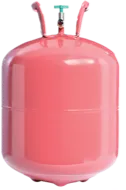Recycle Cylinders
the Easy Way.
Cylinder Recycling Locations
TCC is working with municipal transfer stations, campgrounds, recycling facilities and HHW collection programs to participate as cylinder collection sites for its program throughout the State of Connecticut. The types of cylinders collected may vary and restrictions may apply according to the type of collection site.
What You Can Recycle
Connecticut residents can drop off small cylinders such as:
- Butane
- Isobutane
- Helium
- Propylene (MAP)
- Propane (smaller than 20 lb. BBQ grill tanks)
What You Can’t Recycle
Please don’t bring:
- Industrial, commercial, or institutional cylinders
- Cylinders containing acetylene, carbon dioxide (CO2), ethylene, hydrogen, nitrous oxide, oxygen, refrigerants, or spray foam/adhesives
- Fire extinguishers, candle lighters, or cigarette lighters
- Vapes or nitrous oxide cylinders
2026 Household Hazardous
Waste Collection
Schedule Coming Soon
What We Accept
We take the cylinders you use most for camping, cooking, DIY projects, and more. That includes propane, helium, isobutane, MAP/PRO, and handheld torch cylinders. Our program makes sure these cylinders are handled the right way.
See below for accepted items in your area. For anything not covered, visit our Resources page.

Propane
Refillable tanks under 20 lbs.

Helium
Small and large sizes

Isobutane Camping Cylinders
4 oz / 8 oz / 16 oz

Propane
16 oz

Propylene (MAP)
14 oz

Propane
14 oz

Butane
5.5 oz
What Happens After
You Recycle?
When you drop off a cylinder at a TCC collection site, it begins a new journey. The metal is recycled into new products, and in some cases, any remaining gas is recovered. By recycling, you’re keeping cylinders out of the trash and ensuring they’re managed responsibly, with care for both people and the environment.
Frequently Asked Questions
Why should I recycle a cylinder?
As with other materials, recycling residential gas cylinders is good for the environment. Metal recycled from these cylinders can be reused and made into other products. In addition, it is important to ensure safe handling of residential gas cylinders when consumers are done using them.
Why is a separate collection system needed for these products?
Even empty cylinders still have residual gases in them when turned in for recycling. Recovering those gasses requires a specific process that is not part of traditional waste collection. Similar to how PaintCare makes it easy to recycle paint and Call2Recycle offers convenient drop-offs for battery recycling, Cylinder Collective makes sure used cylinders are recycled in a safe and environmentally friendly way.
What kind of cylinders can I recycle?
The cylinders we recycle are the ones commonly used for camping, cooking, DIY projects, and other household tasks—think small propane or isobutane cylinders, helium tanks, and handheld torches. These types of cylinders contain gases such as propane, butane, helium, and carbon dioxide. Visit our Recycle a Cylinder page to see the products we accept.
Where will cylinders be collected?
Collection points may include municipal waste collection sites such as transfer stations, state parks and campgrounds, household hazardous waste collection events, and other sites. Cylinder Collective recycling programs will be available in select states starting in 2025. Check back soon to see established collection points listed under our Programs & Participants section. Have an idea for a collection site? Send us a message.
What should I do with empty cylinders prior to the start of this program?
The stewardship program will go into effect October 2025, offering free, accessible, and convenient recycling options to local residents. Until then, check with your local solid waste authority or household hazardous waste facility to identify recycling options in your area. Visit our Resources page for more information about cylinder recycling.
When will this be available in other states?
Our program will be available in Connecticut in 2025. We believe that a collaborative approach is the best way to develop recycling programs that meet the needs of consumers, retailers, producers, and government. Cylinder Collective is committed to replicating our model approach in other states interested in pressurized cylinder stewardship solutions.

